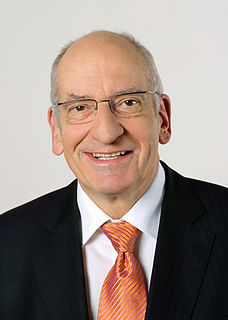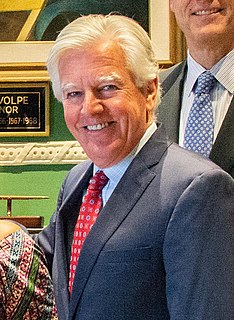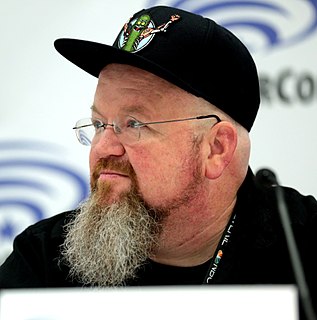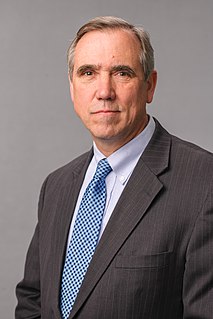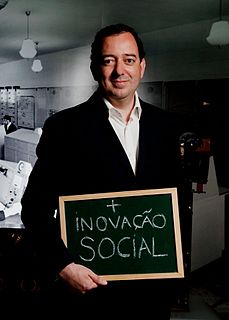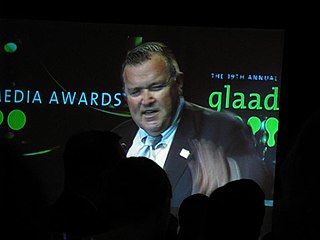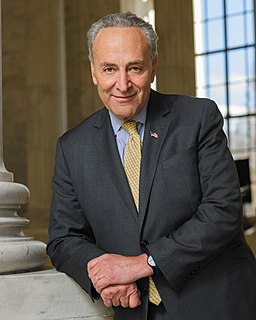Top 175 Pharmaceutical Quotes & Sayings - Page 3
Explore popular Pharmaceutical quotes.
Last updated on December 11, 2024.
Wake up, America. The insurance companies took over health care. Wake up, America. The pharmaceutical companies took over drug pricing. Wake up, America. The speculators took over Wall Street. Wake up, America. They want to take your Social Security. Wake up, America. Multinational corporations took over our trade policies, factories are closing, good paying jobs lost. Wake up, America. We went into Iraq for oil.
They're [[harmaceuticals companies] just making a killing out of people's death. And they're benefiting by people's suffering. And I find that obscene. I find it ridiculous in this day and age, that that would happen. And it took President Clinton to go to rogue pharmaceutical companies to copy the antiretroviral drugs for a fraction of the cost.
So much of our politics is stuck in patterns of response that aren't working. When student performance is declining in schools, we implement more controls, more testing, more "accountability," more rigor. We apply even more of those things, from security systems to control of students' behavior through pharmaceutical drugs. That's a situation in which doing is only making things worse. You may have to go through a phase of de-programming, letting go of old habits, coming to stillness, before you can even see what the pattern of action was, and what alternatives there might be.
What happened with the opioid epidemic is the Mexican cartels made a very deliberate, corporate decision to undercut the price of opioids. What they discovered was they could increase production, increase potency and decrease the price, and sell it for a third of what the Big Pharma could, or street dealers could, for Big Pharma pills. North America, and to a slightly lesser extent Europe, is being flooded with this Mexican heroin as a direct result of the attempt to undercut American pharmaceutical companies.
I want good science, and I want it to be realistically marketed. I wouldn't like only two countries on the planet that allow pharmaceutical companies to market directly to people, New Zealand and the United States. It ought to be better regulated. And when it's presented to people, it ought to be presented in a way that's realistic. For example, often people will prescribe antidepressant medications, and we'll say, you have a brain disease; you'll have to be on these medications permanently. There is no biological marker for depression. It's not true that we know that it's a brain disease.
If the 1,990-page House Health Care Bill becomes law, the average American will receive worse health care, American physicians will decline in status and income, American medical innovation will dramatically slow down and pharmaceutical discoveries will decline in number and quality. And, of course, the economy of the United States will deteriorate, perhaps permanently.
Obama came in really wanting to change things, but he hit a wall of corporate money, oil and coal money: when he tried to pass the Cap and Trade system of pharmaceutical money, when he tried to pass the Obamacare - which, of course, then got watered down into a much less effective, much less economical, program.
People treat having a kid as somehow retiring from success. Quitting. Have you seen a baby? They’re pretty cute. Loving them is pretty easy. Smiling babies should actually be categorized by the pharmaceutical industry as a powerful antidepressant. Being happy is really the definition of success, isn’t it?
If you look at the expenses of a great pharmaceutical company, they pay between about 10 to 15 percent of their expenses for research, but they use 30 to 40 percent of their incomes for marketing and promotion. It is not completely wrong that they spend so much, but it is not correct to say that there is a direct connection between the price of drugs and the cost of research. It could be more between the cost of marketing and the cost of the drugs.
As James Surowiecki noted in a New Yorker article, given a choice between developing antibiotics that people will take every day for two weeks and antidepressants that people will take every day for ever, drug companies not surprisingly opt for the latter. Although a few antibiotics have been toughened up a bit, the pharmaceutical industry hasn't given us an entirely new antibiotic since the 1970s.
I've often been flabbergasted by modern pharmaceutical ads on television. The list of side effects for some maladies often sound worse than the condition they're supposed to treat. Once I even heard "heart failure" listed as a side effect, and I wondered how that happened. Heart failure sounds like a pretty major event to me, and if you're willing to risk heart failure in order to avoid the mild discomfort of some other condition, then may the gods shield you from harm, since you're obviously seeking it out.
It is true that my discovery of LSD was a chance discovery, but it was the outcome of planned experiments and these experiments took place in the framework of systematic pharmaceutical, chemical research. It could better be described as serendipity. That means that you look for something, you have a certain plan, and then you find something else, different, that may nevertheless be useful.
On one hand we encourage and allow major pharmaceutical companies to openly hook vast sectors of our population on narcotics, and then we cut them off and throw them in jail, and moralize about it. It is clearly a huge, huge, and growing problem. It's devastating. We need to treat it as a health crisis, which it is, and stop moralizing.
The economy, virtually all the new income has gone to the top 10 percent, and we need to find those areas where we can actually make a change in that. And that includes enhancing manufacturing jobs in this country, it includes the ability to go to community college for free, it includes the ability to have debt-free higher education, it includes career technical education in our high schools. It also includes taking on the pharmaceutical companies on the extravagant prices that they`re charging for the drugs. Americans need to stay healthy.
In the eighties and nineties, the innovation agenda was exclusively focused on enterprises. There was a time in which economic and social issues were seen as separate. Economy was producing wealth, society was spending. In the 21st century economy, this is not true anymore. Sectors like health, social services and education have a tendency to grow, in GDP percentage as well as in creating employment, whereas other industries are decreasing. In the long term, an innovation in social services or education will be as important as an innovation in the pharmaceutical or aerospatial industry.
In my view, this is not extremism on the left. This is what the American people support in poll after poll. Support the right to a job. Support living wages. Support real climate action. Support small community-based banks that make loans available to every day people and small businesses, not these too-big-to-fail banks that rip us off, that crash the economy at taxpayer expense. Support a public-option healthcare system, not Obamacare, which has been a boondoggle for insurance and pharmaceutical companies.
Over the last 30 odd years, Democrats have moved to the right and the right has moved into the mental hospital. So what we have is one perfectly good party for hedge fund managers, credit card companies, banks, defense contractors, big agriculture and the pharmaceutical lobby... That's the Democrats. And they sit across the aisle from a small group of religious lunatics, flat-earthers and civil war re-enactors who mostly communicate by AM radio and call themselves the Republicans and who actually worry that Obama is a socialist. Socialist? He's not even a liberal.
The fundamental concept of optimum nutrition heralds an entire new paradigm in medicine, no less important than that of Louis Pasteur's discovery that organisms can cause disease. Fundamental to this is the discovery that large amounts of essential nutrients, above that available from a 'well balanced diet' can help restore health in people with diseases. It is my firm belief that, in an enlightened society, pharmaceutical drugs would play a very small part in medicine.
I was born in Karachi, where my father used to work in the sales department of a pharmaceutical company. The nature of his job required him to travel, so we moved to Athens, Dubai, Saudi Arabia, and Riyadh and then went to Manchester during the Gulf War, moving back to Lahore closer to my father's retirement.
I was at a pharmaceutical conference in Dallas and bored out of my head. I'd split up from my missus and went downtown and had my kids' initials done, JLD, for Joseph, Luke and Daniel. Then I got back with my wife so I had her initials added during the Edinburgh Fringe Festival - after I'd waited a few years to see if the marriage would work!
It [the pharmaceutical industry] is the most profitable industry in the world, and partially funds the US government. It surpasses oil in terms of profits and my country recently went to war due to oil pricing. What does that say they will do to keep this other industry in tact? It is up to patients and their families to question what they are being given, and to consumers to demand better, more natural alternatives.
I have children. I have other concerns. I have other focuses. I really feel very sympathetic and I would love to be able to help but I don't see this as the opportunity, having done 'Extraordinary measures', for me to suddenly leap on a soap box and begin to talk about the pharmaceutical industry or the desperate plight of sick children. I do what I can in my world but I don't have the bona fides to do that right now.
All drama teachers are very effusive, very emotionally open, very big, and gesticulate a lot, and are very physical. Those people don't work in banks and they don't work for pharmaceutical companies. They teach drama, or they may be theatre directors. That's why I love people who are openly gay in theatre, because they have license to do what they like, and there's a kind of artistic liberal tolerance thing that goes on.
I am not against the pharmaceutical companies. I love them. That's not the issue. The issue is, in some cases, when they do these clinical trials, they control the data. They analyze the data. In some cases, they even write the article. And that leads to at least the perception, if not the reality, that there's a conflict of interest.
In a large pharmaceutical company, where it's a big bet, you're going to need finance people to be involved in the decision-making because the investment can run into the hundreds of millions of dollars. You're going to have to run scenarios. You might even need agreement from the C.E.O. to make that type of decision. If it's an incremental, low-cost decision in a marketing-oriented company, it may be a very different set of stakeholders a lot further down in the organization.
Pharmaceutical companies have too much influence over the education of physicians in this country. They have too much control over the evaluation of their own products, and that's a conflict of interest. I think the industry needs to be regulated, but I've never suggested taking it out of the market altogether.
The Internet ethos of diversity and competition runs exactly counter to uniform, gatekeeper-oriented medical culture - the technocratic philosophy of the 'one best way' embodied in our pharmaceutical regulations. On the Net, medical information is abundant, and pharmacies, domestic and foreign, operate on many different models.
NAFTA and GATT are quite similar. They both have highly protectionist elements. They're kind of a mixture of liberalization and protection designed to expand the power of transnational corporations. They're very basically investor's rights agreements. One crucial part in both is the "intellectual property right," which is a funny way of saying that corporations, like pharmaceutical companies, will have near-monopolistic rule over future technology. This now includes product as well as process rights.
Antidepressants are the biggest fraud in the world. Number one, Prozac gives you a royal soft-on like you wouldn't believe, and number two you never know all the side effects. I look at the pharmaceutical companies as the drug barons, the psychopharmcologists as the mules and the patients as the victims. They're innocent because they think they're being cured.
Over the past two decades the pharmaceutical industry has moved very far from its original high purpose of discovering and producing useful new drugs. Now primarily a marketing machine to sell drugs of dubious benefit, this industry uses its wealth and power to co-opt every institution that might stand in its way, including the US Congress, the FDA, academic medical centers, and the medical profession itself.
Getting a traditional pharmaceutical to the market can cost a billion dollars or more. Newer, more tailored and targeted drugs called biologics are even more complex and expensive. Simple economics dictates that companies and venture funds will invest more in products that can generate a sufficient return.
In the middle-class United States, a veneer of "alternative lifestyles" disguises the reality that, here as everywhere, women's apparent "choices" whether or not to have children are still dependent on the far from neutral will of male legislators, jurists, a male medical and pharmaceutical profession, well-financed lobbies, including the prelates of the Catholic Church, and the political reality that women do not as yet have self-determination over our bodies and still live mostly in ignorance of our authentic physicality, our possible choices, our eroticism itself.
You cannot be a party which takes money from Wall Street, which is not strong on the pharmaceutical industry, which is ripping us off every day, which is not strong on health care in taking on the insurance companies, which has not shown a desire to stand up and fight the economic establishment, and then tell working families that you are on their side. People see through that.
I'm not critical of the people who do psychotherapy. The therapists in the trenches have to face an awful lot of the social, political, and economic failures of capitalism. They have to take care of all the rejects and failures. They are sincere and work hard with very little credit, and the HMOs and the pharmaceutical companies and insurance companies are trying to wipe them out. So certainly I am not attacking them. I am attacking the theories of psychotherapy.
If you want to understand a society, take a good look at the drugs it uses. And what can this tell you about American culture? Well, look at the drugs we use. Except for pharmaceutical poison, there are essentially only two drugs that Western civilization tolerates: Caffeine from Monday to Friday to energize you enough to make you a productive member of society, and alcohol from Friday to Monday to keep you too stupid to figure out the prison that you are living in.
The field of U.S. cancer care is organized around a medical monopoly that ensures a continuous flow of money to the pharmaceutical companies, medical technology firms, research institutes, and government agencies such as the Food and Drug Administration (FDA) and the National Cancer Institute (NCI) and quasi-public organizations such as the American Cancer Society (ACS).
The enclosure of the biological and intellectual commons in this way is a real threat to the future of people everywhere because it creates a situation where common practices that have been part of people's lives for generations become monopolies of a handful of pharmaceutical, agribusiness and agrichemical corporations. People then become incapable of looking after their own needs.
From the recycling miracles in the soil; an army of predators ridding us of unwanted pests; an abundance of life creating a genetic codebook that underpins our food, pharmaceutical industries and much more, it has been estimated that these and other services are each year worth about double global GDP
Big Pharma needs sick people to prosper. Patients, not healthy people, are their customers. If everybody was cured of a particular illness or disease, pharmaceutical companies would lose 100% of their profits on the products they sell for that ailment. What all this means is because modern medicine is so heavily intertwined with the financial profits culture, it’s a sickness industry more than it is a health industry.
I entered Harvard in 1965 not really knowing what I wanted to do. This confusion seems to have lost me a fellowship. G. D. Searle and Company, the pharmaceutical firm, had their home office in Skokie, and they gave a fellowship each year to a graduate from my high school that was going to major in science in college.
If you talk privately to our tech companies, our pharmaceutical companies, our high-end manufacturing companies, the high end of America, where the good-paying jobs are, China is not letting them in unless China gets to steal their intellectual property in a company that`s 51 percent owned by the Chinese.








